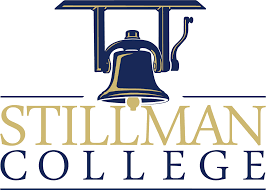Press Release
Universities Awarded Major Philanthropic Grants
to Fuel Public Interest Technology Movement
Funds to be used to advance racial and social justice, climate action, cybersecurity, data equity and more
October 28, 2022
Washington, D.C. — Today New America awarded a total of $2.3 million to 18 universities and colleges in the Public Interest Technology University Network (PIT-UN) to bolster their efforts to embed diversity, equity and inclusion in technology development. Grants will be used to fund interdisciplinary teaching, career pipeline development, experiential learning and network building to advance social and racial justice, climate action, cybersecurity, data equity, human rights and more. The announcement was made at the PIT-UN annual convening in New York City.
Technology plays an outsized role in shaping our perspectives and collective culture. If not designed and used responsibly, it can inflict harm on people, especially vulnerable communities who are often left out of technology and policy decision making. That’s why members of the PIT-UN are working to prepare the next generation of technologists who can critically assess technology’s impact on society and use it as a tool for the public good.
“The Network Challenge projects incentivize university students and professors to consider the impact of technology on society as they are developing the next generation of tools and products. The work they do embodies New America’s vision of a more just and equitable society,” said Paul Butler, president and chief transformation officer for New America. “From community building to empowering marginalized communities, PIT-UN and its grantees build on the strength of our nation’s diversity and stand as models for technological development into the future.”
“We’re thrilled to see how public interest technology has come to life as a field—both inside this impressive network of universities and through innovative community partnerships that reach beyond the university walls. Their collective effort demonstrates the promise of PIT in putting people at the center of our tech future.”Katy Knight, president and executive director of the Siegel Family Endowment
The Network Challenge grants are exclusively available via application to members of PIT-UN, comprising 48 academic institutions working to strengthen public interest technology as a discipline and a career. It brings together students and educators from multiple disciplines to solve the toughest challenges our country and world face. Over the past three years, the Challenge has funded 123 projects totaling more than $14 million.
“The Public Interest Technology University Network is fast becoming an indispensable link in the technology-development chain, ensuring that technology is developed and deployed as a force for public good,” said Darren Walker, president of the Ford Foundation. “I am thrilled to see the collaboration, innovation and community building these projects bring to the Network and beyond.”
“This year’s winning projects share a common attribute. They center on the needs of communities,” said Andreen Soley, director of Public Interest Technology at New America. “Our equity and Inclusive focus is the engine that drives all Challenge projects. It means modeling the development of technologies through co-designing with the communities and individuals that are meant to be recipients of the tools being deployed. It also means thoughtfully engaging the work that minority-serving institutions contribute to the growing PIT field.”
The 18 universities that have been awarded grants this year include:


















The Public Interest Technology University Network is a partnership of 48 colleges and universities convened by New America, the Ford Foundation, and the Hewlett Foundation. The network and challenge grants are funded through the support of the Ford Foundation, Hewlett Foundation, Mastercard Impact Fund, with support from the Mastercard Center for Inclusive Growth, The Raikes Foundation, Schmidt Futures and The Siegel Family Endowment. PIT-UN is dedicated to building the field of public interest technology through curriculum development, faculty research opportunities, and experiential learning programs, in order to inspire a new generation of civic-minded technologists and policy leaders.
